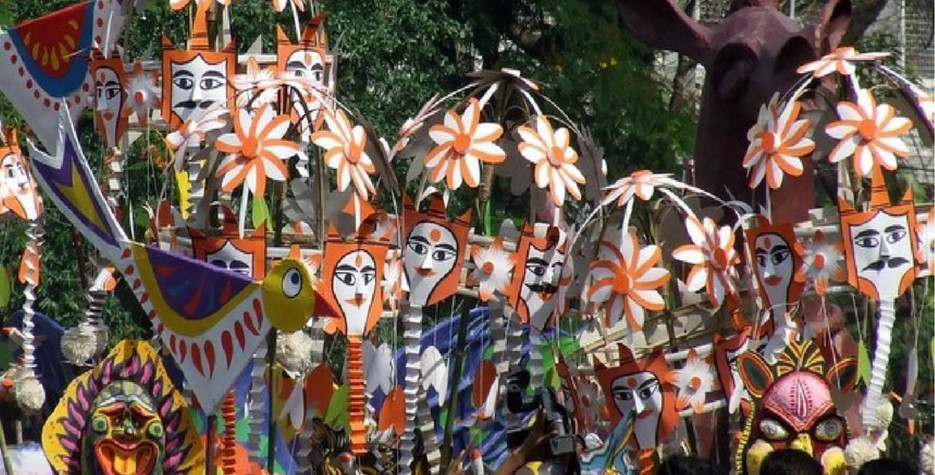About Bengali New Year
Bengali New Year, also known as 'Shubho Nabo Barsho' or 'Pohela Boishakh' is the first day in the Bengali calendar.
Poila means ‘first’ and Boishakh is the first month of the Bengali calendar. King Shoshangko of ancient Bengal is credited with starting the Bengali era. The starting point of the Bengali era is estimated to be 594 in the Gregorian calendar.
Mughal Emperor Akbar introduced the Bengali calendar in 1556 (Gregorian calendar) to make the collection of land tax easier in 'Subah Bangla', much of which is now in Bangladesh.
As it is based on a solar calendar it occurs on April 14th in the Gregorian calendar each year. It is a public holiday in Bangladesh and in India, it is a public holiday in several states and may be celebrated by Bengali communities elsewhere in India.
It may be observed on April 15th in India, as April 14th is already a holiday in many states for Dr Ambedkar Jayanti.
It is celebrated at the time as many other new years in the region. It is marked by the sun moving from Pieces to Aries. This is an ancient festival and when it was first observed, the movement of the sun into Aries would have been closer to the Vernal Equinox which marks the arrival of spring in the northern hemisphere. The dates of these events differ today due to the wobble of the earth on its axis over a 25,000 cycle - known as procession.
The traditional greeting for Bengali New Year is 'Shubho Nabobarsho' which means 'Happy New Year'.
Bengalis usually start the day with the traditional simple breakfast of panta-bhat (leftover rice soaked in water), fried fish and traditional curries.
The celebration of the Bengali New Year begins then begins at sunrise when hundreds of thousands of people irrespective of cast, colour, sex and religion join a mass procession, Mangal Shobha Jatra, to welcome the new year with good spirits. The procession is organised by the teachers and students of the Faculty of Fine Arts of Dhaka University and was declared an intangible cultural heritage by UNESCO in 2016.
As with other new years' traditions in the region, Bengali families clean their house and decorate them with colourful motifs called alpana. At the centre of the alpana pattern, they place an earthen pot, filled with water, covered with mango leaves and marked with the sacred Hindu red and white swastika sign. This is intended to bring good luck and fortune to the household in the coming year. People may also visit their nearby river to say prayers and take a ritual bath.
To mark the day, Museums remain open without any entrance fee.


